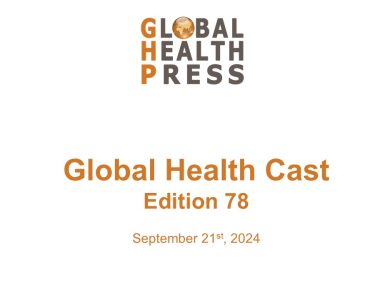A recent survey commissioned by the Abbott Pandemic Defense Coalition reveals that 61% of infectious disease professionals believe mosquito-borne pathogens pose the greatest threat as climate change intensifies. This growing concern centers on viruses such as dengue fever, Zika virus, West Nile virus, and malaria. These viruses are spread by mosquitoes and are endemic to Latin America, Africa, and other regions. As global temperatures rise and extreme weather events such as flooding become more frequent, experts predict that the range of these mosquito-borne diseases will expand, pushing the insects into expanded areas and prolonging their presence in endemic regions.
Climate change’s growing impact on disease transmission
The survey sheds light on alarming predictions that Zika could affect 1.3 billion people by 2050. In addition, 61% of the world’s population could be at risk of dengue fever by 2080. As Jorge Osorio, DVM, PhD, MS, professor and director of the Global Health Institute at the University of Wisconsin-Madison, emphasized, “Temperature increases and extreme weather events are impacting how humans, animals, and insects interact, and we are finding mosquito-borne viruses in new places.” Osorio called for a globally coordinated effort to exchange knowledge between countries with experience in managing these diseases and to ensure that effective surveillance and countermeasures are in place to combat the spread of these viruses.
The role of the Abbott Pandemic Defense Coalition
The Abbott Pandemic Defense Coalition, an industry-led global scientific and public health partnership, is dedicated to early detection and rapid response to potential pandemics. The coalition focuses on identifying, tracking, analyzing, and testing emerging outbreaks, including COVID-19 variants. Gavin Cloherty, PhD, head of infectious disease research at Abbott, likened their work to “virus hunters” monitoring for pathogens with the potential to cause outbreaks. “Disease surveillance acts as our radar,” Cloherty noted, “helping us prioritize which viruses are most likely to trigger an outbreak and where those outbreaks may occur.”
Key finding:
The survey, conducted between April and June 2024, gathered insights from over 100 virology, epidemiology, and infectious disease professionals worldwide. These experts were asked about their priorities for addressing gaps in disease outbreak preparedness. They were also asked about their views on the impact of environmental changes on infectious diseases, and their recommendations for building a resilient healthcare system. The coalition identified three key priorities based on the survey results:
- Addressing gaps in public health systems: The survey highlighted the need for robust surveillance programs to quickly identify new pathogens and emerging outbreaks. Experts emphasized that sustainable funding for public health is essential to train the next generation of “virus hunters” and educate the public about infectious diseases.
- Targeted disease monitoring: Not all outbreaks present the same risk. Understanding which pathogens can spark national, regional, or global health crises is crucial. This helps the healthcare community allocate resources efficiently and strengthens public awareness of circulating viruses.
- Understanding the changing environment: Nearly all surveyed experts agree that the evolving interactions between humans, animals, and insects, driven by climate change, will continue to alter infectious disease outbreaks. Continued research and investment in new technologies are necessary to understand these dynamics and prepare for old diseases appearing in new regions and accelerating transmission routes.
The survey underscores the need for a sustained sense of urgency in addressing these growing threats. As Cloherty from Abbott’s Pandemic Defense Coalition stated, “Disease surveillance acts as our radar, helping us prioritize which viruses are most likely to trigger an outbreak and where those outbreaks may occur”. By investing in public health systems and focusing on mosquito-borne diseases, the global community can better prepare for the increasing risks posed by climate change.
The insights provided by the survey emphasize the importance of a proactive and coordinated approach to prevent future pandemics, particularly those driven by environmental changes. As old diseases emerge in new regions and transmission pathways accelerate, global collaboration will be critical to mitigating the impact of these threats on public health (Source: Abbott)
By Daniela La Marca, Global Health Press

















